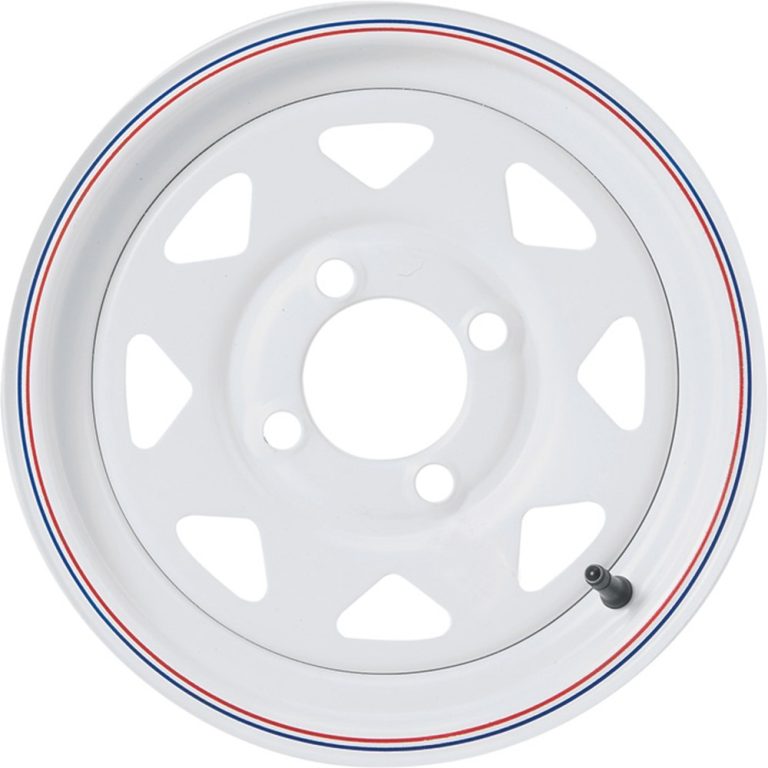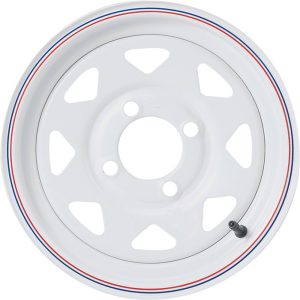Car steel wheels:
The most commonly used car wheel is the disc wheel made of steel. Usually it is build up by two components, rim and disc. Today’s steel wheels (rim and disc) are made of warm rolled steel with a high offset yield strength (>600 MPa). Both are sectionally weld together from the inside. Using a constant welding seam, would cause a massive distortion, that’s why sectionally welding is the most proper method. The position of the welding seams needs always to be in the area of the fewest dynamical driving load causing a minimum of alternating stress. Only this principle is assuring the fatigue resistance which as a vital characteristic over the live cycle of the wheels welding seams.
Production Method:
A standard automotive steel wheel rim is made from a rectangular sheet metal. The metal plate is bent to produce a cylindrical sleeve with the two free edges of the sleeve welded together. At least one cylindrical flow spinning operation is carried out to obtain a given thickness profile of the sleeve—in particular comprising in the zone intended to constitute the outer seat an angle of inclination relative to the axial direction. The sleeve is then shaped to obtain the rims on each side with a radially inner cylindrical wall in the zone of the outer seat and with a radially outer conical wall inclined at an angle corresponding to the standard inclination of the rim seats. The rim is then calibrated.
To support the cylindrical rim structure, a disc is made by stamping a metal plate. It has to have appropriate holes for the center hub and lug nuts. The radial outer surface of the wheel disk has a cylindrical geometry to fit inside the rim. The rim and wheel disk are assembled by fitting together under the outer seat of the rim and the assembly welded together. The disk is welded in place such that the center of the wheel is equal to the center of the hub. The distance of the disc to the back edge of the rim is called ‘offset’ or ET, from German Einpresstiefe.


